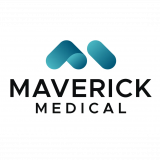In today’s fast-paced healthcare industry, practices face growing challenges in managing their revenue cycles effectively. Rising claim denials, delayed payments, and complex payer rules often make it difficult for providers to maintain financial stability. This is where specialized Accounts Receivable Services
play a crucial role. By outsourcing or streamlining AR processes, medical practices can significantly reduce outstanding balances, improve cash flow, and create a healthier revenue stream. Just as essential, practices also rely on core Medical Billing Services to ensure accurate claim submission, coding compliance, and timely reimbursements—both services working together to form the backbone of financial success in healthcare.
The Importance of Managing Accounts Receivable in Healthcare
Accounts receivable (AR) in healthcare refers to the money owed to a practice by insurance companies and patients for medical services provided. When claims are not paid promptly or remain unresolved for too long, they become aged receivables that can damage a practice’s financial health.
Poorly managed AR often results in:
Cash flow shortages
An increase in bad debt write-offs
Administrative burden on staff
Reduced profitability for providers
With efficient Accounts Receivable Services, these risks can be mitigated. Experienced billing professionals track, follow up, and resolve claims, ensuring that healthcare providers are compensated on time.
Key Benefits of Accounts Receivable Services
Improved Cash Flow
The primary goal of AR management is to speed up payment collections. Professional AR teams follow up consistently with payers and patients to close open balances quickly.
Reduction in Denials
Many AR problems stem from errors in coding, documentation, or claim submission. AR specialists identify these issues and correct them, leading to fewer denials and rejections.
Lower Administrative Burden
By outsourcing AR, in-house staff can focus on patient care instead of navigating complex billing tasks and payer negotiations.
Better Patient Experience
Clear communication with patients regarding balances and flexible payment options ensures a smoother financial experience.
Increased Revenue Capture
AR teams identify underpaid or overlooked claims and recover lost revenue that practices may not have had the time or resources to pursue.
How Accounts Receivable Services Work
The process of effective AR management involves several key steps:
Claims Review – AR specialists analyze unpaid claims to identify the reason for non-payment.
Payer Follow-Up – They directly communicate with insurance companies to resolve claim issues.
Patient Billing & Collections – For balances owed by patients, timely reminders and structured collection strategies are implemented.
Appeals & Resubmissions – Denied claims are corrected and resubmitted promptly.
Reporting & Analytics – Practices receive detailed AR aging reports to track financial health.
This systematic approach ensures that no claim or payment opportunity is overlooked.
The Role of Medical Billing in Supporting AR Management
While AR focuses on recovering unpaid balances, billing services ensure that claims are filed correctly in the first place. By using advanced Medical Billing Services
, providers reduce the chances of delays and denials, creating a more seamless revenue cycle.
Medical billing teams handle:
Patient eligibility verification
Accurate medical coding
Timely claim submission
Payment posting
Denial management
When both AR and billing services work together, healthcare organizations experience smoother operations and stronger financial outcomes.
Challenges in Managing Accounts Receivable
Despite its importance, AR management comes with several challenges:
Insurance Delays: Payers often use complex approval processes that delay payments.
High Volume of Claims: Practices dealing with large patient volumes struggle to follow up on every outstanding claim.
Patient Responsibility: With rising deductibles, patient payments now account for a significant portion of AR.
Staffing Issues: In-house billing teams often lack the time or expertise to manage aging claims effectively.
Outsourcing Accounts Receivable Services addresses these challenges by dedicating skilled professionals and advanced technology to the task.
Why Outsourcing Accounts Receivable is the Smart Choice
Outsourcing AR services allows practices to leverage industry expertise and reduce financial leakage. Benefits include:
24/7 claim monitoring
Use of advanced billing software
Compliance with HIPAA and payer rules
Scalable support tailored to practice size
Access to experienced AR specialists without hiring in-house staff
Ultimately, outsourcing enhances revenue collection efficiency while keeping operational costs lower.
Accounts Receivable and Revenue Cycle Management
Accounts receivable management is not an isolated process—it is a vital component of the broader revenue cycle. When AR is handled efficiently, it strengthens overall revenue cycle management (RCM).
Key contributions of AR to RCM include:
Reducing the average days in accounts receivable (DAR)
Increasing clean claim rates
Enhancing denial resolution rates
Improving financial predictability for healthcare organizations
When combined with professional billing services, AR ensures that the revenue cycle is not just reactive but proactive.
Best Practices for Accounts Receivable Management
To maximize effectiveness, AR services follow industry best practices:
Regular AR Aging Analysis – Monitoring claims in 30, 60, 90, and 120-day cycles.
Prioritizing High-Value Claims – Addressing large outstanding balances first.
Automation & Technology – Using billing software for faster follow-up and reporting.
Continuous Training – Ensuring billing staff stay updated with payer rules and coding changes.
Patient Engagement – Offering online payment portals, reminders, and financial counseling.
These practices allow providers to recover more revenue while maintaining patient trust.
The Future of Accounts Receivable in Healthcare
With healthcare reimbursement models evolving, AR management is expected to become even more complex. The shift toward value-based care, telehealth billing, and increasing patient financial responsibility all add layers of challenge.
Future-ready AR services will rely on:
.AI-driven claim analysis
.Predictive analytics for denial prevention
.Patient-centric payment solutions
.Integration with electronic health records (EHR)
Providers that adopt these advancements will be better positioned to thrive financially.
Conclusion
Efficient accounts receivable management is essential for the long-term sustainability of any healthcare practice. By implementing professional Accounts Receivable Services, providers can reduce denials, accelerate collections, and focus more on patient care rather than financial stress.
When combined with reliable Medical Billing Services, AR becomes a powerful driver of revenue cycle success. Together, these solutions create a streamlined path for financial growth, compliance, and operational efficiency in healthcare organizations.
FAQs about Accounts Receivable Services
Q1: What are Accounts Receivable Services in healthcare?
Accounts Receivable Services involve managing and collecting unpaid balances from insurance companies and patients to ensure timely reimbursements.
Q2: How do AR services improve cash flow for medical practices?
They reduce claim backlogs, follow up consistently with payers, and recover aged claims, resulting in faster payments.
Q3: Can AR services help reduce claim denials?
Yes. Specialists identify and correct errors that cause denials, resubmit claims, and implement strategies to prevent future issues.
Q4: Should small practices consider outsourcing AR?
Absolutely. Outsourcing is cost-effective and gives small practices access to expert AR specialists without hiring additional staff.
Q5: How do Accounts Receivable Services relate to Medical Billing Services?
While billing ensures accurate claim submission, AR focuses on recovering unpaid balances. Together, they strengthen the revenue cycle.
Q6: What is the average time to recover unpaid claims?
Recovery time depends on payer responsiveness, but effective AR services significantly reduce the average days in accounts receivable.




Share the News